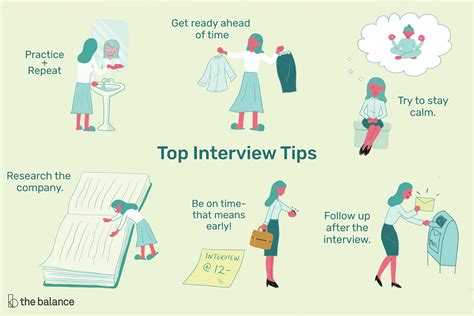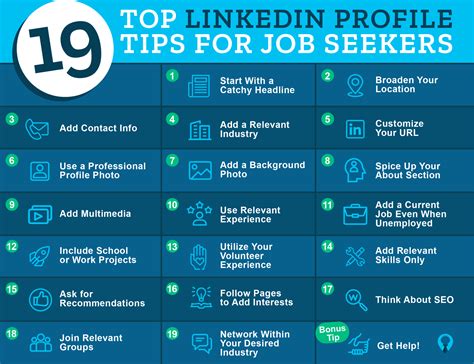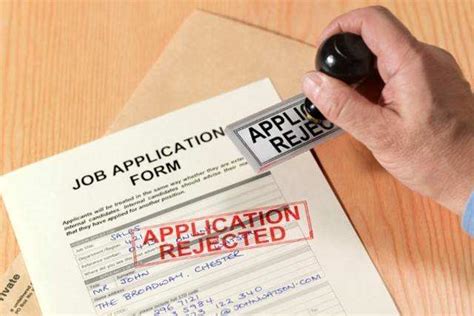Job hunting can be a tedious and demotivating process, especially when faced with repeated rejections. It's easy to get discouraged and wonder what you're doing wrong. While it's impossible to know for certain why a particular applicant was rejected, there are some common mistakes that can make or break your chances of landing an interview or getting hired.
Understanding these mistakes can help you improve your application process and increase your chances of success. Here are five common reasons why applicants get rejected and what you can do to avoid making the same mistakes.
Reason 1: Poorly Written Resume and Cover Letter

Your resume and cover letter are often the first impression you make on a potential employer. A poorly written resume and cover letter can make a negative impression and hurt your chances of getting hired. Here are some common mistakes to avoid:
- Typos and grammatical errors: A single mistake can make you appear careless and unprofessional.
- Lack of relevance: Make sure your resume and cover letter are tailored to the specific job you're applying for.
- Poor formatting: Use a clean and easy-to-read format to make your application stand out.
Tips for Improving Your Resume and Cover Letter
- Use a standard font and formatting throughout your resume and cover letter.
- Proofread multiple times to catch any typos or grammatical errors.
- Use keywords from the job description to show your relevance for the position.
Reason 2: Lack of Relevant Skills and Experience

Many applicants get rejected because they lack the relevant skills and experience required for the job. Here are some ways to improve your chances:
- Take online courses or attend workshops to improve your skills.
- Highlight any relevant experience you have, even if it's not directly related to the job.
- Consider internships or volunteer work to gain experience.
Tips for Improving Your Skills and Experience
- Identify the key skills required for the job and focus on improving those skills.
- Use specific examples to demonstrate your skills and experience.
- Don't be afraid to highlight any transferable skills you may have.
Reason 3: Poor Interview Performance

Poor interview performance can make or break your chances of getting hired. Here are some common mistakes to avoid:
- Lack of preparation: Make sure you research the company and practice your responses to common interview questions.
- Negative attitude: A positive attitude and body language can go a long way in making a good impression.
- Poor communication skills: Practice your communication skills to ensure you can effectively convey your thoughts and ideas.
Tips for Improving Your Interview Performance
- Prepare answers to common interview questions.
- Practice your body language and tone of voice.
- Use the STAR method to structure your responses to behavioral interview questions.
Reason 4: Unprofessional Online Presence

Your online presence can make or break your chances of getting hired. Here are some common mistakes to avoid:
- Unprofessional social media profiles: Make sure your social media profiles are professional and respectful.
- Negative online reviews: Avoid posting negative reviews or comments about previous employers or colleagues.
- Inconsistent online presence: Make sure your online presence is consistent across all platforms.
Tips for Improving Your Online Presence
- Use a professional profile picture and header image on social media.
- Avoid posting negative or inflammatory content online.
- Use a consistent tone and voice across all online platforms.
Reason 5: Lack of Follow-Up

Following up after an interview or application can make a big difference in your chances of getting hired. Here are some common mistakes to avoid:
- Not sending a thank-you note: A thank-you note can help you stand out and show your appreciation for the interviewer's time.
- Not following up with the interviewer: A follow-up email or phone call can help you stay top of mind and show your interest in the position.
- Not being patient: Hiring processes can take time, so be patient and don't get discouraged if you don't hear back right away.
Tips for Improving Your Follow-Up
- Send a thank-you note within 24 hours of the interview.
- Follow up with the interviewer within a week of the interview.
- Be patient and don't get discouraged if you don't hear back right away.






We hope this article has provided you with valuable insights into the common reasons why applicants get rejected. By avoiding these mistakes and improving your application process, you can increase your chances of success and land your dream job.
What is the most common reason why applicants get rejected?
+The most common reason why applicants get rejected is a poorly written resume and cover letter.
How can I improve my chances of getting hired?
+You can improve your chances of getting hired by improving your skills and experience, preparing for interviews, and having a professional online presence.
What is the importance of following up after an interview?
+Following up after an interview can help you stand out and show your interest in the position. It can also help you stay top of mind and increase your chances of getting hired.
Share your thoughts and experiences in the comments below! What do you think is the most common reason why applicants get rejected? How have you improved your chances of getting hired?
